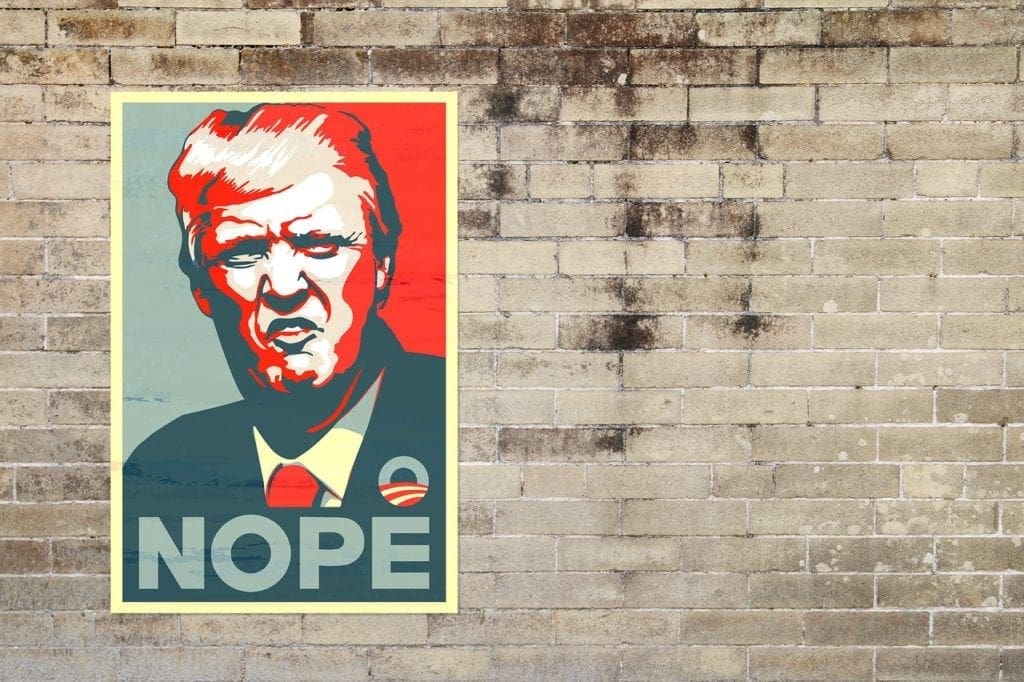President Donald Trump’s tax cuts have been a positive so far in his presidency. But they could all go to waste based on the president’s recent tariff maneuvers.
The New York Times reports that the tariffs Trump is using to punish trading partners like China and Europe would wipe out the gains from his $1.5 trillion tax cuts for lower and middle class earners. Thankfully for taxpayers, Trump and Mexico came to an agreement to at least make an effort to tackle the crisis at the border. Otherwise, Mexico could have faced stiff tariff hikes of 25 percent on its products.

What’s often missing in this equation is the fact that tariffs are a tax that is ultimately passed on to consumers through higher priced goods. Tariffs tend be concentrated in their damage, as a percentage of income, at the lowest levels of American income earners. This segment of the American populace spends a larger portion of their salaries on imports than the upper middle class and rich do.
Kyle Pomerlau of the Tax Foundation broke down the harsh truth about the Trump tariffs:
“Once you start adding in the tariffs and start talking about what Trump wants to do at the end of the day it gets harder and harder for Trump and Republicans to claim that they are cutting taxes for the middle class.”
Even Trump’s tax cuts, which were a positive first step, ended up being offset by the previous tariff hikes. According to Tax Foundation research, the lowest fifth of tax-paying wage earners in America were hit by a 1.1 percent tax increase. Individuals in the middle fifth saw their taxes increase by 0.3 percent. Further, upper middle class earners witnessed the gains they made from the Trump tax cuts effectively nullified. On the other hand, the top 5 percent of wage earners were still in the positive by experiencing a net tax cut of more than 1 percent on the year. All in all, tariffs are regressive in nature, with the lower classes tending to shoulder the majority of the tax burden.
In some regards, tariffs are preferable to the current system of taxation in the United States. They used to be the primary way that the government funded itself. But there’s a caveat— government spending was much lower, standing at 3 percent of GDP. Furthermore, there was no bureaucratic managerial state nor was there a central banking system causing economic distortions. In short, the government was much smaller when tariff rates were high during the late 19th century.
Context is important, and that’s why tariffs are not the silver bullet in dealing with countries like Mexico. There are other measures that can be pursued by the Trump administration to get Mexico’s act together.
Overhauling the U.S. immigration system so that it is more merit-based would be a good first step. It should be easier to work in America, rather than making it easier to vote. Emphasizing political activity before work is putting the cart before the horse. Ideally, we would also scale back the welfare state, which is effectively a huge migration magnet that ends up becoming a massive burden for taxpayers.
National sovereignty is a key component of maintaining a secure nation. A modest proposal would be to drastically reduce our presence abroad and bring back troops to guard certain vulnerable spots on the southern border. There’s no need to create an intricate bureaucracy. Instead we should use the resources —troops— that our current foreign policy has misallocated.
Incentivizing Mexico to help out should also be on the table. Mexico, a country that depends heavily on American trade, has a vested interest in having a secure border so that goods and people can move without trouble. This issue does not need to be an exclusively American affair. The more hands on deck, the better.
Ending the Drug War would also help reduce the influence of border cartels and stem the flow of violence across the border. Drug prohibition artificially inflates cartel profit margins and turns the efforts of otherwise ragtag groups of criminals into well-run enterprises.
All these policy alternatives should be considered before even entertaining tariffs. We can have a conversation about raising tariffs once the U.S. government is put on a major diet. Until then, other alternatives should take priority.

























